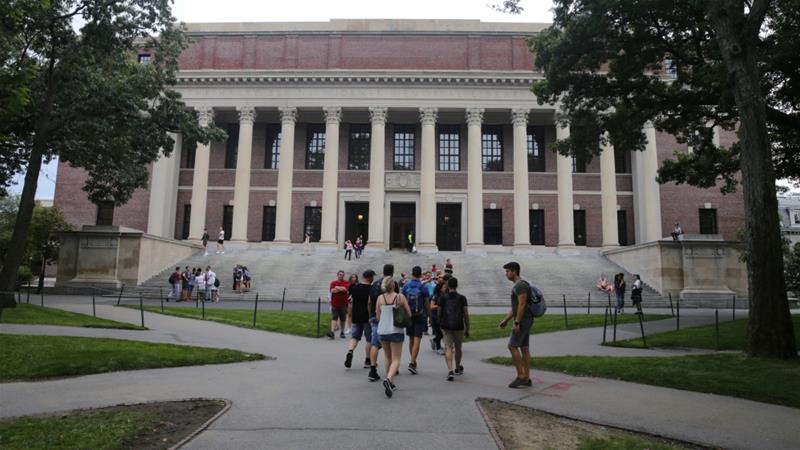
US floats plan to expel thousands of Chinese college students
Visa revocation proposal faces opposition from US universities and scientific organisations that host Chinese students.
In the latest sign of tensions between the United States and Beijing over trade, the coronavirus pandemic, human rights and the status of Hong Kong, the Trump administration may soon expel thousands of Chinese graduate students enrolled at universities in the US and impose other sanctions against Chinese officials.
President Donald Trump said he would make an announcement about China on Friday, and administration officials said he is considering a months-old proposal to revoke the visas of students affiliated with educational institutions in China linked to the People's Liberation Army or Chinese intelligence.
More:
Trump is also weighing targeted travel and financial sanctions against Chinese officials for actions in Hong Kong, US officials told the Associated Press news agency.
"We'll be announcing what we're doing tomorrow with respect to China and we are not happy with China," Trump told reporters at an unrelated event on Thursday, referring mainly to COVID-19. "We are not happy with what's happened. All over the world people are suffering, 186 countries. All over the world they're suffering. We're not happy."
Although the student expulsions are not directly related to Hong Kong and China's move to assert full control over the former British territory, potential sanctions against officials involved in that effort would be a result of Secretary of State Mike Pompeo's determination that Hong Kong can no longer be considered autonomous from mainland China.
Pompeo notified the US Congress on Wednesday that Hong Kong is no longer deserving of the preferential trade and commercial status it has enjoyed from the US since it reverted to Chinese rule in 1997. Under a joint Sino-British agreement on the handover, Hong Kong was to be governed differently than the mainland for 50 years under a "one country, two systems" policy.
Pompeo's determination opened the door to possible sanctions and the loss of special perks Hong Kong has received from the US. But neither Pompeo nor other officials were able on Wednesday to describe what action the administration might take, an uncertainty related to the impact that such sanctions would have on US companies that operate in Hong Kong and the city's position as Asia's major financial hub. Trump's comments sparked a drop in US financial markets.
Serious consideration of the visa revocation proposal has faced opposition from US universities and scientific organisations that depend on tuition fees paid by Chinese students to offset other costs. Those institutions also fear possible reciprocal action from Beijing that could limit their students' and educators' access to China.
In a nod to those concerns, the officials said any restrictions would be narrowly tailored to affect only students who present a significant risk of engaging in espionage or intellectual property theft. The officials could not say how many people could ultimately be expelled, although they said it would be only a fraction of the number of Chinese students in the country.
Still, the possibility that the proposal may be implemented has drawn concerns from educators.
"We're very worried about how broadly this will be applied, and we're concerned it could send a message that we no longer welcome talented students and scholars from around the globe," said Sarah Spreitzer, director of government relations at the American Council on Education.
"We don't have a lot of details about how they are going to define ties to Chinese universities, what type of universities are they going to target, what would constitute a university having ties to the Chinese military," she said. If the situation were reversed and another nation imposed limits on students from US universities that receive Defense Department funding, she noted it would affect a wide range of schools.
The US hosted 133,396 graduate students from China in the 2018-19 academic year, and they made up 36.1 percent of all international graduate students, according to the Institute of International Education. Overall, there were 369,548 students from China, accounting for 33.7 percent of international students who contributed nearly $15bn to the US economy in 2018.